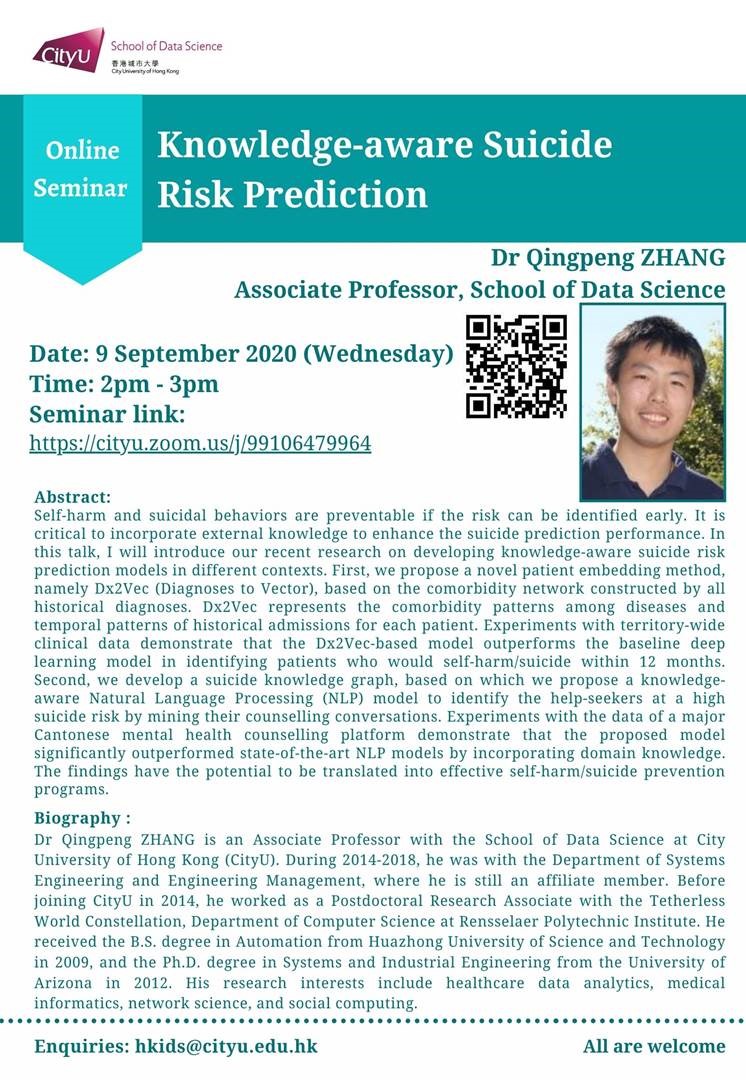
Self-harm and suicidal behaviors are preventable if the risk can be identified early. It is critical to incorporate external knowledge to enhance the suicide prediction performance. In this talk, I will introduce our recent research on developing knowledge-aware suicide risk prediction models in different contexts. First, we propose a novel patient embedding method, namely Dx2Vec (Diagnoses to Vector), based on the comorbidity network constructed by all historical diagnoses. Dx2Vec represents the comorbidity patterns among diseases and temporal patterns of historical admissions for each patient. Experiments with territory-wide clinical data demonstrate that the Dx2Vec-based model outperforms the baseline deep learning model in identifying patients who would self-harm/suicide within 12 months. Second, we develop a suicide knowledge graph, based on which we propose a knowledgeaware Natural Language Processing (NLP) model to identify the help-seekers at a high suicide risk by mining their counselling conversations. Experiments with the data of a major Cantonese mental health counselling platform demonstrate that the proposed model significantly outperformed state-of-the-art NLP models by incorporating domain knowledge. The findings have the potential to be translated into effective self-harm/suicide prevention programs..
Speaker: Dr Qingpeng ZHANG
Date: 9 September 2020 (Wed)
Time: 14:00pm - 15:00pm
Poster: Click here
Latest Seminar
Biography
Dr Qingpeng ZHANG is an Associate Professor with the School of Data Science at City University of Hong Kong (CityU). During 2014-2018, he was with the Department of Systems Engineering and Engineering Management, where he is still an affiliate member. Before joining CityU in 2014, he worked as a Postdoctoral Research Associate with the Tetherless World Constellation, Department of Computer Science at Rensselaer Polytechnic Institute. He received the B.S. degree in Automation from Huazhong University of Science and Technology in 2009, and the Ph.D. degree in Systems and Industrial Engineering from the University of Arizona in 2012. His research interests include healthcare data analytics, medical informatics, network science, and social computing.